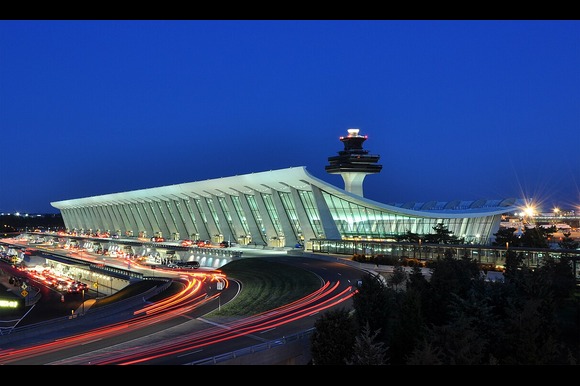WASHINGTON: The United States may provide Pakistan with a 60-day period to resolve security issues and avert possible travel restrictions, although some limitations might still be imposed, as reported by various American media outlets on Saturday.
In contrast to previous assumptions, a leaked draft of the proposal indicates that Pakistan will not be placed on the red list, which is designated for countries subject to a complete travel ban by the US. Diplomatic sources in Washington attribute Pakistan’s ability to avoid the most stringent restrictions to its renewed cooperation with the US in counterterrorism efforts.
In a recent address to Congress, President Donald Trump recognized Pakistan’s contribution in assisting the US in the capture of Mohammad Sharifullah, who is accused of orchestrating the 2021 Kabul airport bombing that resulted in the deaths of 13 American service members and at least 170 Afghan civilians.
Nevertheless, Washington continues to express concerns regarding the increase in terrorist activities in Afghanistan. While some US officials still regard Pakistan as a potentially significant ally in counterterrorism, they anticipate that Islamabad will need to take additional measures to rectify security shortcomings.
Proposed Restrictions
Reports indicate that rather than implementing a total ban, Pakistan may be categorized on an intermediate list, although there are varying opinions regarding its specific classification.
As reported by Reuters, Pakistan could be assigned to a “yellow list,” which includes 25 other countries that may face a partial suspension of US visa issuance unless they enhance security cooperation within a two-month timeframe.
This category also encompasses nations such as Belarus and Turkmenistan.
Conversely, The New York Times references a draft proposal that categorizes Pakistan on an “orange list” of 10 countries subject to travel restrictions, though not entirely prohibited. Under this classification, business travelers may still be eligible for visas, while immigrant and tourist visas could be restricted.
Citizens from these countries would also be mandated to participate in in-person interviews prior to obtaining a US visa.
The proposed list features Belarus, Eritrea, Haiti, Laos, Myanmar, Pakistan, Russia, Sierra Leone, South Sudan, and Turkmenistan.
On the other end of the spectrum, the administration is also finalizing a “red list” of 11 countries whose citizens would be completely prohibited from entering the United States. This list includes Afghanistan, Bhutan, Cuba, Iran, Libya, North Korea, Somalia, Sudan, Syria, Venezuela, and Yemen.
Policy Considerations
On the inaugural day of his second term, President Trump signed an executive order instructing the State Department to reassess visa and immigration policies. This order mandates the implementation of more rigorous screening and vetting processes for travelers hailing from nations identified as security threats.
The State Department, in collaboration with the Justice and Homeland Security departments, is expected to present a report to the White House next week.
The directive requires that scrutinized countries must prove their capability to provide accurate and verifiable information to aid U.S. authorities in evaluating visa applications and mitigating potential security risks. Additionally, it calls for the re-establishment of a consistent baseline for vetting and screening standards applicable to the affected nations.
American Muslims
The suggested restrictions have raised significant alarm within American Muslim communities, particularly as these developments coincide with the UN-designated International Day to Combat Islamophobia. Many individuals express concern that the broadened travel bans unfairly target Muslim-majority nations, perpetuating discriminatory practices under the pretext of security.
This policy change has already instigated uncertainty for students and professionals alike. Columbia University’s International Students and Scholars Office has issued a travel advisory, urging students from impacted countries—especially Pakistan—to reconsider non-essential travel due to potential re-entry challenges. The Council on American-Islamic Relations (CAIR) has similarly advised Pakistani nationals and others to postpone travel until the administration reaches a final decision.
Discussions on social media reveal escalating anxiety, with numerous Muslim professionals, including doctors and IT specialists, cautioning one another to ensure they possess all necessary documentation while traveling. The apprehension regarding heightened scrutiny at U.S. airports and embassies has further intensified concerns about the broader implications of this policy.
Pakistan’s Strategic Positioning
In light of prevailing concerns, Pakistan has an opportunity to tackle security issues and potentially evade more stringent restrictions. Diplomatic channels indicate that Pakistan’s collaboration with the United States in counterterrorism efforts, particularly following the arrest of Mohammad Sharifullah, has played a role in averting more severe actions.
Nevertheless, the increase in militant activities in Afghanistan continues to influence Washington’s approach to the region. Although Pakistan has so far managed to sidestep the most severe sanctions, the upcoming two months will be crucial in determining its ability to completely avoid travel restrictions.
As the Trump administration contemplates extending travel limitations to as many as 43 countries, the political and humanitarian implications are still being discussed.
At present, uncertainty prevails for Pakistani nationals and American Muslims, who are concerned that these travel measures may have enduring effects on their freedom of movement and safety.






